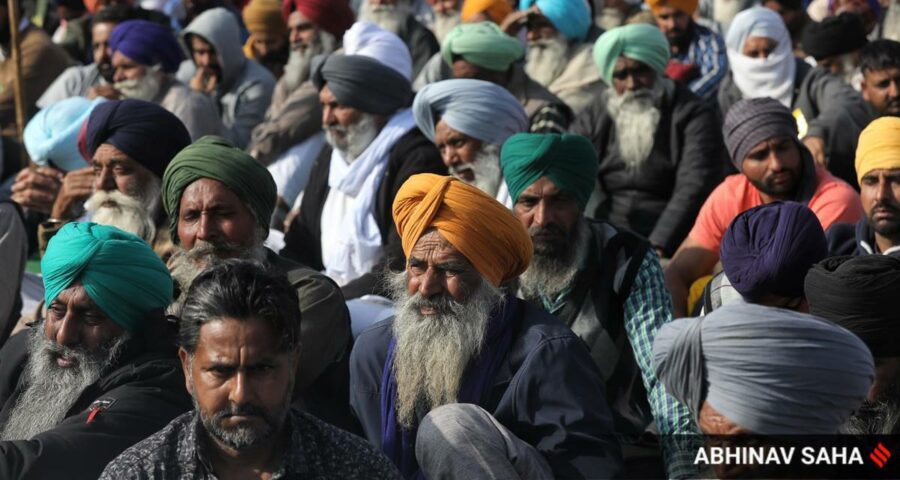It requires great moral stamina to continue the satyagraha in the spirit of Gandhi against an authoritarian regime that refuses to hear, listen to or learn from the common man.
Written by Hitesh D Gajaria
Truth and non-violence were not mere policies for Gandhi but a creed. Satyagraha and civil disobedience draw their organic and spiritual energies from truth and non-violence. In Gandhi’s satyagraha, the minimum is the maximum. Once he takes up an issue, he analyses it threadbare, finds its core. The political, social or cultural evil in the issue is addressed and redress sought through satyagraha. He never takes up or includes any other issue during the struggle. As to a flowing river another stream, other issues may organically join the satyagraha.
Rarely has satyagraha been practised in the spirit enunciated as above since Gandhi’s demise. More often than not, the satyagraha is used as a political weapon to secure power.
The satyagrahis at the forefront of the ongoing farmers’ movement made several appeals to the ruling dispensation after the farm laws were legislated unilaterally without sufficient discussion in Parliament. Issues such as the Citizenship Amendment Act and human rights violations in the Bhima Koregaon case were raised by them at one time. These issues are important, of course. But I think they should not have been included in the course of satyagraha against the farm laws.
In Gandhi’s idea of satyagraha, the satyagrahi trusts the opponent at every step. When the government offered to freeze the controversial laws for 18 months in return for calling off the satyagraha, farmers declined. That was because they did not trust the government’s promise. The present rulers are worse than the colonial administrators. Yet, the farmers to ought have taken the opportunity and continued the dialogue. If the government failed on keeping its promise, they would have the moral right to begin the agitation afresh.
On the Republic Day, some unruly elements infiltrated the movement. A farmer died in the violence that ensued and many policemen were injured.
The moral vigilance of the farmers had failed them. If Gandhi was a part of the movement, he would have called it off and gone on fast against the violence. We cannot expect Gandhi’s morality in the present leaders of any movement. This applies to you and me, who are mere spectators, observers or activists. It is good the farmers fasted the whole day on January 30.
It requires great moral stamina to continue the satyagraha in the spirit of Gandhi against an authoritarian regime that refuses to hear, listen to or learn from the common man.
If the agitation fails, it will not only hurt the livelihood of farmers, but also weaken the nation’s ability to feed its citizens. So the question is, how to continue the struggle? It is a difficult and complex question. People like me, who are merely students of Gandhi, not even an activist, do not have an answer.
The egotist government, I fear, will not come forward for a creative dialogue and address the concerns of farmers with empathy. As seen in recent years, the government will try to paint the farmers and their supporters and activists as anti-nationals. Let us invoke Gandhi’s moral spirit and pray that the authorities see sense and listen to the farmers, who represent the heart of Bharatiya civilisation.
In fact, the farmers agitation flags an important civilisational question. Should India imitate the ways of modern civilisation, wherein the farmer and her toil is valued on utilitarian terms, and land is sought to be exploited by transnational corporates for huge profits. A true farmer represents Planet Earth, the inter-connected web of all sentient beings including the Homo Sapien, and, of course, the five elements of Earth.
Aravindakshan is a Malayalam novelist, essayist and the author of Gandhiyude Jeevita Darshanam, a study of the Mahatma’s life and work.
Source: Read Full Article


